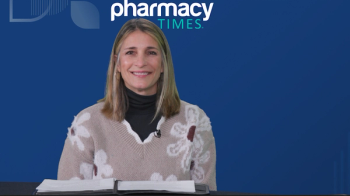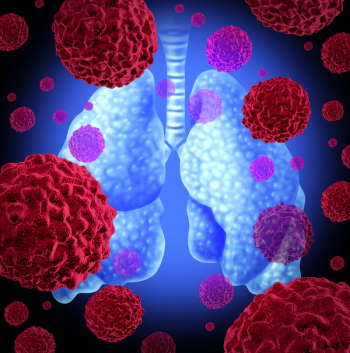
Despite benefits for reducing drug costs, community oncology practices face the unintended consequences of the IRA.

Despite benefits for reducing drug costs, community oncology practices face the unintended consequences of the IRA.

Explore the role of JAK inhibitors in myelofibrosis treatment, focusing on optimizing dosages and managing adverse effects for better patient outcomes.

Biomarker testing transforms non-small cell lung cancer treatment, enhancing outcomes through targeted therapies and next-generation sequencing for better patient care.

Explore the latest advancements in chronic lymphocytic leukemia treatment, focusing on BTK and BCL2 inhibitors, monoclonal antibodies, and patient management strategies.

Hyperglycemia is a common and significant adverse effect of PI3K and AKT inhibitors in hormone receptor-positive (HR+) breast cancer.

Judith Alberto, MHA, RPh, BCOP, discusses the COA 2025 Community Oncology Conference, emphasizing its focus on transparency in oncology and the role of data in supporting pharmacists' contributions to patient care.

Glenn Balasky discusses AI’s potential to change oncology care and optimize patient outcomes.

Fred Barton discusses the role of PBMs in making prescription drug decisions.

Gwen Nichols, MD, discusses challenges associated with the limited access to CAR T therapy and the need to expand outpatient and community care for patients.

Mark Fendrick, MD, speaks about the importance of improving financial toxicity for patients while optimizing their outcomes.

Nick Ferreyros discusses the state and federal regulations impacting payment reform.

Lalan Wilfong, MD, discusses the road to value-based care and payment reform in cancer care.

Questions arise around equity and revenue challenges.

Jonathan Levitt, Esq, discusses legislation and legal action taken to rein in pharmacy benefit managers’ DIR fees.

Stephen Divers, MD, discussed the future of home infusion and drug development, and how both issues will be influential in the future of community pharmacy.

Key lifestyle risk factors for chronic diseases and cancers include tobacco use, poor nutrition, lack of physical movement, and obesity.

Although community oncology has grown, maintaining services for patients is an ongoing challenge.

Presenter at the 2023 Community Oncology Alliance meeting notes that oncology has become more of a duality between molecular and genetic subsets, leading to huge developments in targeted and personalized care.

In addition to improving working conditions for current employees, burnout must be addressed in order to recruit and retain new employees and alleviate understaffing.

Although state efforts can be impactful, Downs said enforcement is a major hurdle.

Among patients with lung cancer, approximately 20% have the earliest stage of disease but are still dying of metastatic lung cancer within about 5 years.

Drugs such as pembrolizumab, sacituzumab govitecan, and datopotamab deruxtecan all have growing bodies of evidence illustrating which patients with cancer are most likely to benefit and in which settings.

Despite tensions that can occur, building relationships with health systems and finding opportunities to collaborate is crucial to improve cancer care.

Shiela Plasencia, director of practice support at the Community Oncology Alliance, discussed COA’s new tool to help practices prepare for the Enhancing Oncology Model.

Nick Ferreyros, managing director of policy, advocacy, and communications at the Community Oncology Alliance, discussed the Alliance’s efforts surrounding PBMs and 340B reform.

Melissa Johnson, MD, program director of Lung Cancer Research at the Sarah Cannon Research Institute, discusses her presentation at the Community Oncology Alliance 2022 conference on new drugs in the non-small cell lung cancer space.

Jim Schwartz, RPh, executive director of pharmacy operations for Oncology Pharmacy Services, discusses his presentation at the Community Oncology Alliance 2022 conference on the new world of oral cancer drug dispensing.

Ted Okon, MBA, executive director of the Community Oncology Alliance (COA), discusses key highlights from the in-person COA 2022 conference.

Elizabeth Spurlock, MA, PHR, director of HR Business Partner at Texas Oncology, discusses how burnout among physicians, nurses, and hospital administrators has impacted the role of the pharmacist in patient care.

A presentation at the Community Oncology Alliance 2021 Virtual Conference focused on the latest developments in gastrointestinal oncology and how the field of gastroesophageal cancer is responding to 3 major, practice-changing trials.